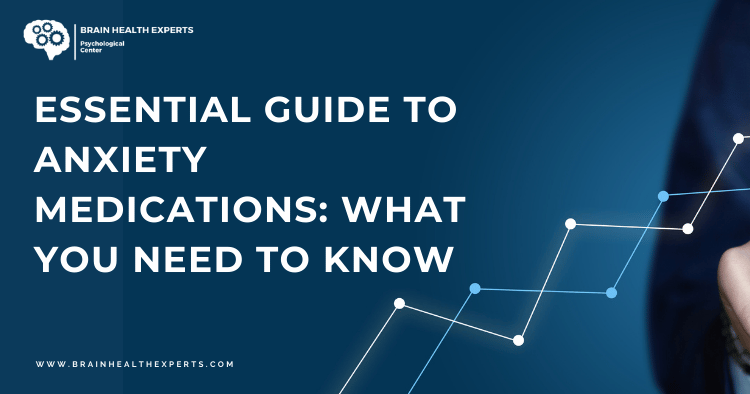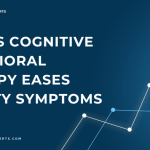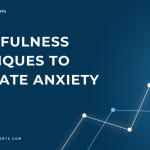Table of Contents
- Understanding Anxiety Disorders
- Types of Anxiety Medications
- How Anxiety Medications Work
- Potential Side Effects
- Considerations Before Starting Medication
- FAQs about Anxiety Medications
- Conclusion
Understanding Anxiety Disorders
Anxiety disorders are among the most common mental health issues, affecting millions worldwide. They can manifest in various forms, including generalized anxiety disorder (GAD), panic disorder, social anxiety disorder, and specific phobias. Symptoms may include excessive worry, restlessness, fatigue, difficulty concentrating, and physical symptoms like increased heart rate and muscle tension.
Understanding the nature of these disorders is crucial in determining the best treatment options, which often include therapy, lifestyle changes, and medications. For more detailed insights on anxiety disorders, you can visit the National Institute of Mental Health.
Types of Anxiety Medications
When it comes to treating anxiety, several classes of medications are commonly prescribed, each with unique mechanisms and uses.
Antidepressants
Antidepressants are often the first-line treatment for anxiety disorders. They work by balancing neurotransmitters in the brain, primarily serotonin and norepinephrine. The main types include:
- Selective Serotonin Reuptake Inhibitors (SSRIs): These are commonly prescribed for anxiety due to their favorable side effect profile. Examples include fluoxetine (Prozac), sertraline (Zoloft), and escitalopram (Lexapro).
- Serotonin-Norepinephrine Reuptake Inhibitors (SNRIs): Venlafaxine (Effexor) and duloxetine (Cymbalta) fall into this category and can be effective for both anxiety and depression.
Benzodiazepines
Benzodiazepines are fast-acting medications often prescribed for short-term relief of acute anxiety symptoms. They work by enhancing the effect of the neurotransmitter GABA, which has a calming effect. Common examples include:
| Medication | Brand Name | Onset of Action | Duration of Effect |
|---|---|---|---|
| Diazepam | Valium | 30-60 minutes | 4-6 hours |
| Lorazepam | Ativan | 30-60 minutes | 6-8 hours |
| Alprazolam | Xanax | 30-60 minutes | 4-6 hours |
While effective, benzodiazepines can lead to dependence if used long-term, so they are usually prescribed for short periods. For strategies to manage stress and anxiety, check out 10 Proven Stress Management Techniques.
Buspirone
Buspirone is a unique anti-anxiety medication that is not a benzodiazepine. It is often used for generalized anxiety disorder and works by affecting serotonin and dopamine receptors in the brain. Unlike benzodiazepines, buspirone does not have sedative properties, making it less likely to cause dependence.
Beta-Blockers
Though primarily used to treat heart conditions, beta-blockers like propranolol can help manage the physical symptoms of anxiety, such as rapid heartbeat and tremors. They are often prescribed for performance anxiety or situational anxiety.
How Anxiety Medications Work
Anxiety medications primarily work by altering the balance of neurotransmitters in the brain, which helps regulate mood and anxiety levels. Here’s a brief overview:
- SSRIs and SNRIs increase serotonin and norepinephrine levels, improving mood and reducing anxiety.
- Benzodiazepines enhance GABA activity, leading to a calming effect on the nervous system.
- Buspirone modifies serotonin and dopamine activity, promoting a sense of calm without sedation.
- Beta-blockers block the effects of adrenaline, reducing physical symptoms of anxiety.
Potential Side Effects
While anxiety medications can be effective, they may also come with side effects. Here’s a breakdown:
| Medication Class | Common Side Effects | Serious Side Effects |
|---|---|---|
| SSRIs | Nausea, insomnia, weight gain | Increased suicidal thoughts |
| SNRIs | Dizziness, dry mouth | Liver damage (rare) |
| Benzodiazepines | Drowsiness, confusion | Dependence, overdose |
| Buspirone | Dizziness, nausea | Allergic reactions (rare) |
| Beta-Blockers | Fatigue, cold extremities | Bradycardia (slow heart rate) |
Always consult with your healthcare provider to understand the risks and benefits associated with any medication.
Considerations Before Starting Medication
Before beginning any medication for anxiety, it’s essential to consider the following:
- Consultation with a Professional: Always speak with a psychiatrist or primary care doctor who can evaluate your symptoms and medical history.
- Combination with Therapy: Medications are often more effective when combined with cognitive-behavioral therapy (CBT) or other therapeutic approaches. For effective CBT techniques, you might find 10 Effective CBT Techniques to Overcome Anxiety Today helpful.
- Lifestyle Factors: Diet, exercise, and sleep play significant roles in managing anxiety and should be considered alongside medication.
- Potential Interactions: Discuss any other medications or supplements you’re taking to avoid adverse interactions.
FAQs about Anxiety Medications
Q: How long does it take for anxiety medications to work?
A: It varies by medication. SSRIs and SNRIs may take several weeks to show effects, while benzodiazepines can provide immediate relief.
Q: Can I stop taking anxiety medications suddenly?
A: No, it’s important to consult your doctor before stopping any medication, especially benzodiazepines, as they can cause withdrawal symptoms.
Q: Will I need to take anxiety medication for life?
A: Not necessarily. Some individuals may use medication temporarily, while others might need longer-term management based on their situation.
Q: Are anxiety medications safe?
A: When prescribed and monitored by a healthcare professional, anxiety medications can be safe and effective. Always discuss concerns with your doctor.
Conclusion
Navigating the world of anxiety medications can be overwhelming, but understanding the various options available is an essential step in managing anxiety effectively.
Remember that medication is just one part of a comprehensive treatment plan that may also include therapy and lifestyle changes. Always consult with a healthcare provider to find the best approach tailored to your needs.
For more information about anxiety and its treatments, you can check out the Anxiety and Depression Association of America.
Also look for:
- 10 Proven Stress Management Techniques for Daily Relief
- 10 Effective Strategies to Enhance Workplace Mental Health
- 10 Ways Positive Thinking Boosts Emotional Well-Being
Feel free to reach out with any questions or for more personalized advice! You’re not alone on this journey.





